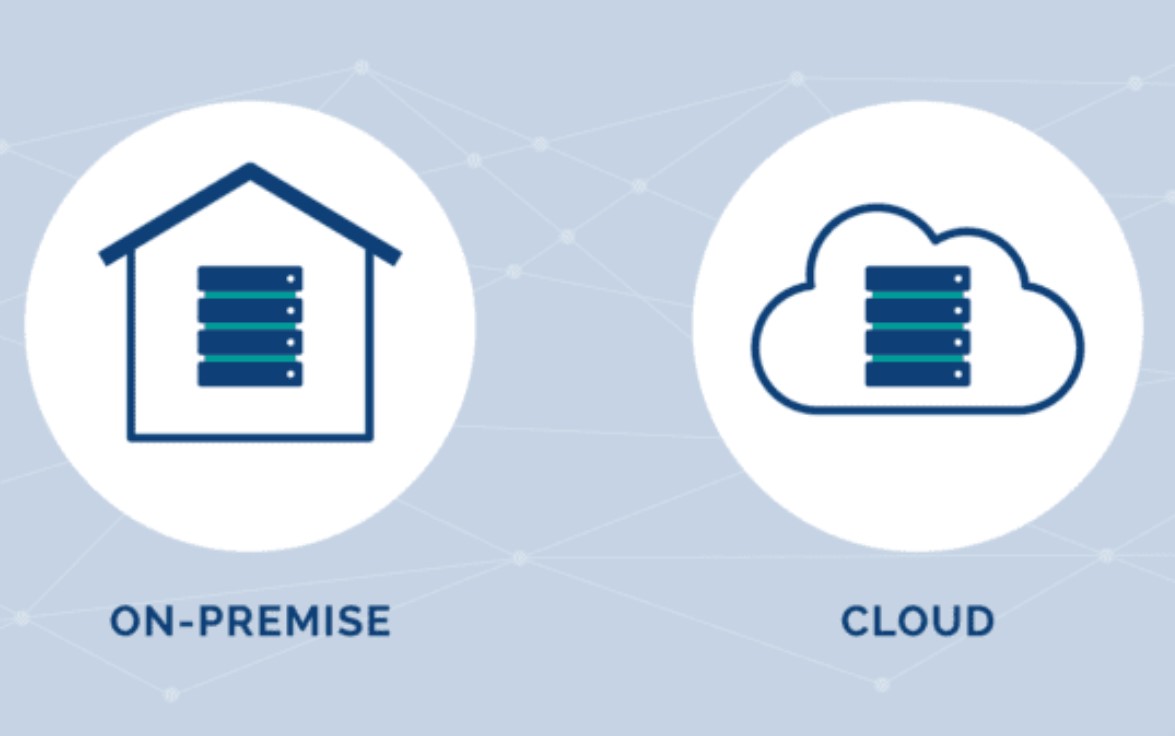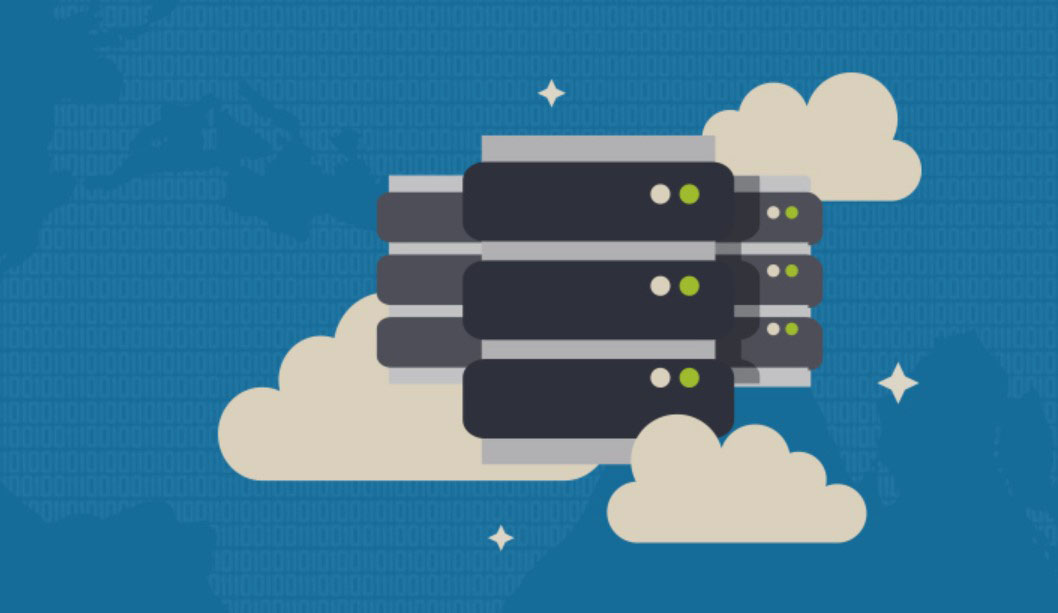
As we move further into the digital age, cloud-based services continue to evolve, offering new opportunities and efficiencies for businesses and individuals alike. In 2024, several trends are expected to shape the future of cloud computing. This article delves into these trends, exploring their benefits and providing insights on the top cloud services to watch.
Emerging Trends in Cloud-Based Services

1. Multi-Cloud Strategies
Organizations are increasingly adopting multi-cloud strategies to avoid vendor lock-in, enhance resilience, and optimize performance. By leveraging multiple cloud providers, businesses can distribute workloads and data across different environments, ensuring greater flexibility and control.
2. Edge Computing
Edge computing is revolutionizing the cloud landscape by bringing computation and data storage closer to the data source. This reduces latency and improves the efficiency of data processing, making it ideal for applications requiring real-time analytics, such as IoT devices and autonomous vehicles.
3. AI and Machine Learning Integration
Artificial Intelligence (AI) and Machine Learning (ML) are becoming integral to cloud services. Cloud providers are offering AI and ML tools that allow businesses to analyze data, automate processes, and gain insights with unprecedented accuracy and speed.
4. Serverless Computing
Serverless computing is gaining traction as it allows developers to build and run applications without managing the underlying infrastructure. This model enables automatic scaling, reduces costs, and accelerates deployment times, making it a popular choice for modern application development.
5. Enhanced Security Measures
With the increasing prevalence of cyber threats, cloud providers are enhancing their security protocols. Advanced encryption, zero-trust security models, and AI-driven threat detection are some of the measures being implemented to protect data and applications in the cloud.
Benefits of Cloud-Based Services
1. Scalability
Cloud services offer unparalleled scalability, allowing businesses to adjust their resources based on demand. This flexibility ensures that companies can handle peak workloads without investing in additional hardware.
2. Cost Efficiency
By utilizing cloud services, businesses can reduce their IT infrastructure costs. Cloud providers offer pay-as-you-go pricing models, enabling companies to pay only for the resources they use. This eliminates the need for significant upfront investments in hardware and maintenance.
3. Remote Accessibility
Cloud-based services provide remote accessibility, allowing employees to access data and applications from anywhere with an internet connection. This capability is particularly beneficial in the era of remote work, as it enables seamless collaboration and productivity.
4. Disaster Recovery
Cloud services offer robust disaster recovery solutions. Data is stored in multiple locations, ensuring that it remains safe and accessible even in the event of hardware failure or other disasters. This redundancy is crucial for maintaining business continuity.
Top Cloud-Based Service Providers in 2024

Here are some of the leading cloud service providers to watch in 2024:
1. Amazon Web Services (AWS)
Amazon Web Services (AWS) is the market leader in cloud computing, offering a comprehensive suite of services.
- Features: Extensive range of services, AI and ML tools, robust security.
- Pros: Highly scalable, extensive global network, strong community support.
- Cons: Complex pricing structure.
- Price: Pay-as-you-go pricing.
- Use Case: Ideal for large enterprises and startups requiring extensive resources and advanced tools.
2. Microsoft Azure
Microsoft Azure is a powerful cloud platform known for its integration with Microsoft products and services.
- Features: Hybrid cloud capabilities, AI and ML services, strong security features.
- Pros: Seamless integration with Microsoft ecosystem, robust enterprise solutions.
- Cons: Can be expensive for small businesses.
- Price: Pay-as-you-go pricing.
- Use Case: Suitable for enterprises using Microsoft products and those needing hybrid cloud solutions.
3. Google Cloud Platform (GCP)
Google Cloud Platform (GCP) offers innovative cloud services with a focus on AI and data analytics.
- Features: Advanced AI and ML tools, data analytics, strong security.
- Pros: Innovative technology, competitive pricing, strong data analytics capabilities.
- Cons: Smaller global network compared to AWS and Azure.
- Price: Pay-as-you-go pricing.
- Use Case: Best for businesses focused on data analytics and AI development.
4. IBM Cloud
IBM Cloud is known for its enterprise-grade solutions and strong emphasis on security.
- Features: AI and ML services, hybrid cloud capabilities, advanced security features.
- Pros: Strong focus on security, robust enterprise solutions, hybrid cloud support.
- Cons: Can be complex to navigate for beginners.
- Price: Pay-as-you-go pricing.
- Use Case: Ideal for large enterprises with stringent security requirements and hybrid cloud needs.
5. Oracle Cloud
Oracle Cloud provides a suite of cloud services with a focus on databases and enterprise applications.
- Features: Comprehensive database solutions, enterprise applications, AI tools.
- Pros: Strong database capabilities, integrated enterprise applications.
- Cons: Higher learning curve.
- Price: Pay-as-you-go pricing.
- Use Case: Best for businesses needing robust database solutions and enterprise applications.
Comparison Table of Cloud Service Providers
| Provider | Use Case | Pros | Cons | Price | Features |
|---|---|---|---|---|---|
| AWS | Large enterprises, startups | Highly scalable, extensive network | Complex pricing | Pay-as-you-go | AI tools, security, global network |
| Microsoft Azure | Enterprises using Microsoft products | Seamless Microsoft integration | Can be expensive | Pay-as-you-go | Hybrid cloud, AI services, security |
| Google Cloud Platform | Data analytics, AI development | Innovative technology, competitive pricing | Smaller global network | Pay-as-you-go | AI tools, data analytics, security |
| IBM Cloud | Large enterprises, hybrid cloud | Strong security focus, enterprise solutions | Complex navigation | Pay-as-you-go | AI services, hybrid cloud, security |
| Oracle Cloud | Database solutions, enterprise apps | Strong database capabilities | Higher learning curve | Pay-as-you-go | Database solutions, enterprise applications |
How to Buy Cloud-Based Services
- Visit the Provider’s Website: Go to the website of the cloud service provider of your choice.
- Choose a Plan: Select a cloud service plan that suits your needs and budget.
- Sign Up: Create an account and provide necessary details.
- Configure Services: Choose the specific services and configurations you need.
- Make Payment: Complete the payment process using available payment methods.
- Set Up and Deploy: Once your payment is confirmed, you can set up and deploy your cloud services through the provider’s control panel.
Use Cases and Problem-Solving with Cloud-Based Services

Cloud-based services have revolutionized the way businesses operate by offering flexible, scalable, and cost-effective solutions to a wide range of challenges. From enhancing productivity to ensuring data security, cloud services provide various benefits that address specific business needs. Here, we explore detailed use cases and problem-solving scenarios where cloud-based services play a crucial role.
1. Scalable Infrastructure
Use Case
A growing e-commerce business experiences significant fluctuations in website traffic, especially during sales events and holiday seasons. To handle these traffic spikes, the business needs a scalable infrastructure that can dynamically adjust resources based on demand.
Problem-Solving
Cloud-Based Solution: Cloud-based infrastructure services like Amazon Web Services (AWS), Microsoft Azure, and Google Cloud Platform (GCP) offer scalable computing resources. These platforms enable auto-scaling, which automatically adjusts the number of active servers based on real-time traffic. This ensures that the website remains responsive and performs well even during high-traffic periods, without the need for manual intervention.
- Benefits:
- Cost Efficiency: Pay only for the resources used during peak times.
- Flexibility: Easily scale up or down based on traffic demands.
- Reliability: Maintain high performance and avoid downtime.
2. Cost Efficiency
Use Case
A startup with limited financial resources needs to build and deploy applications quickly without investing heavily in physical servers and IT infrastructure.
Problem-Solving
Cloud-Based Solution: Platforms like DigitalOcean, Linode, and Vultr provide affordable cloud computing services with pay-as-you-go pricing models. These services eliminate the need for large upfront investments in hardware and maintenance, allowing the startup to focus on development and growth.
- Benefits:
- Reduced Capital Expenditure: No need for significant upfront investments in physical infrastructure.
- Operational Cost Savings: Lower maintenance and operational costs.
- Scalability: Easily scale resources as the business grows.
3. Remote Work Enablement
Use Case
A company with a distributed workforce needs to ensure seamless collaboration and access to data and applications from various locations.
Problem-Solving
Cloud-Based Solution: Cloud services such as Microsoft Office 365, Google Workspace, and Dropbox offer collaborative tools and cloud storage that allow employees to work from anywhere. These platforms provide secure access to documents, emails, and applications, facilitating remote work and collaboration.
- Benefits:
- Accessibility: Employees can access work tools and data from any location.
- Collaboration: Real-time collaboration on documents and projects.
- Security: Secure data access with multi-factor authentication and encryption.
4. Enhanced Security
Use Case
A financial services company needs to protect sensitive customer data and comply with stringent regulatory requirements.
Problem-Solving
Cloud-Based Solution: Cloud providers like IBM Cloud, AWS, and Azure offer advanced security features, including encryption, identity and access management (IAM), and AI-driven threat detection. These features help protect sensitive data and ensure compliance with regulatory standards such as GDPR and HIPAA.
- Benefits:
- Data Protection: Advanced encryption and security measures safeguard data.
- Compliance: Tools and services to help meet regulatory requirements.
- Threat Detection: AI-driven systems detect and mitigate potential threats.
5. Disaster Recovery
Use Case
A healthcare organization needs a robust disaster recovery plan to ensure data continuity in case of hardware failure, natural disasters, or cyber-attacks.
Problem-Solving
Cloud-Based Solution: Cloud services like AWS Backup, Azure Site Recovery, and Google Cloud Backup and DR provide comprehensive disaster recovery solutions. These services offer automated backups, data replication, and failover mechanisms to ensure data is always available and recoverable.
- Benefits:
- Business Continuity: Ensure data and applications are available during disasters.
- Automated Backups: Regular and automated backups reduce the risk of data loss.
- Cost-Effective: Avoid the high costs associated with maintaining physical backup infrastructure.
6. Data Analytics and AI
Use Case
A retail company wants to leverage customer data to enhance marketing strategies and improve customer experience.
Problem-Solving
Cloud-Based Solution: Platforms like Google Cloud AI, Azure Machine Learning, and AWS SageMaker provide powerful data analytics and AI tools. These services enable businesses to analyze large datasets, build predictive models, and gain actionable insights to drive marketing and customer service improvements.
- Benefits:
- Data Insights: Extract valuable insights from large datasets.
- Predictive Analytics: Build models to predict customer behavior and trends.
- Automation: Automate repetitive tasks and improve decision-making processes.
7. Application Development and Testing
Use Case
A software development company needs an environment to develop, test, and deploy applications efficiently.
Problem-Solving
Cloud-Based Solution: Services like AWS Elastic Beanstalk, Google App Engine, and Azure DevOps offer development and testing environments. These platforms provide pre-configured environments, continuous integration/continuous deployment (CI/CD) pipelines, and automated testing tools, enabling faster and more efficient application development.
- Benefits:
- Rapid Deployment: Quickly deploy applications without managing infrastructure.
- Continuous Integration: Automate the build, test, and deployment processes.
- Scalability: Easily scale applications based on user demand.
8. Big Data Management
Use Case
A research institution needs to process and analyze large volumes of scientific data efficiently.
Problem-Solving
Cloud-Based Solution: Big data services like Google BigQuery, Azure Synapse Analytics, and AWS Redshift offer scalable and high-performance data processing capabilities. These platforms provide tools for data storage, processing, and analysis, enabling researchers to handle big data projects effectively.
- Benefits:
- Scalable Storage: Store and manage large datasets efficiently.
- High-Performance Processing: Analyze data quickly and effectively.
- Integration: Integrate with various data sources and analytics tools.
Cloud-based services offer versatile solutions for various business needs, from scalability and cost efficiency to enhanced security and disaster recovery. By leveraging these services, businesses can improve their operations, enhance productivity, and ensure data security. Understanding the use cases and benefits of cloud-based services can help organizations make informed decisions and select the right solutions for their unique requirements.
FAQs
1. What are cloud-based services?
Cloud-based services are services delivered over the internet, providing on-demand access to computing resources such as servers, storage, and applications.
2. Why choose cloud-based services?
Cloud-based services offer scalability, cost efficiency, remote accessibility, disaster recovery, and enhanced security.
3. How much do cloud-based services cost?
The cost varies based on the provider and the specific services used, typically following a pay-as-you-go pricing model.
4. Can I integrate cloud services with existing systems?
Yes, many cloud providers offer hybrid solutions that integrate with on-premises systems and other cloud services.
5. Which is the best cloud service provider?
Top providers include AWS, Microsoft Azure, Google Cloud Platform, IBM Cloud, and Oracle Cloud, each offering unique features and benefits.
By understanding the trends and benefits of cloud-based services in 2024, you can make an informed decision and choose the best provider for your needs. Get started today and leverage the power of the cloud to enhance your business operations and growth!





